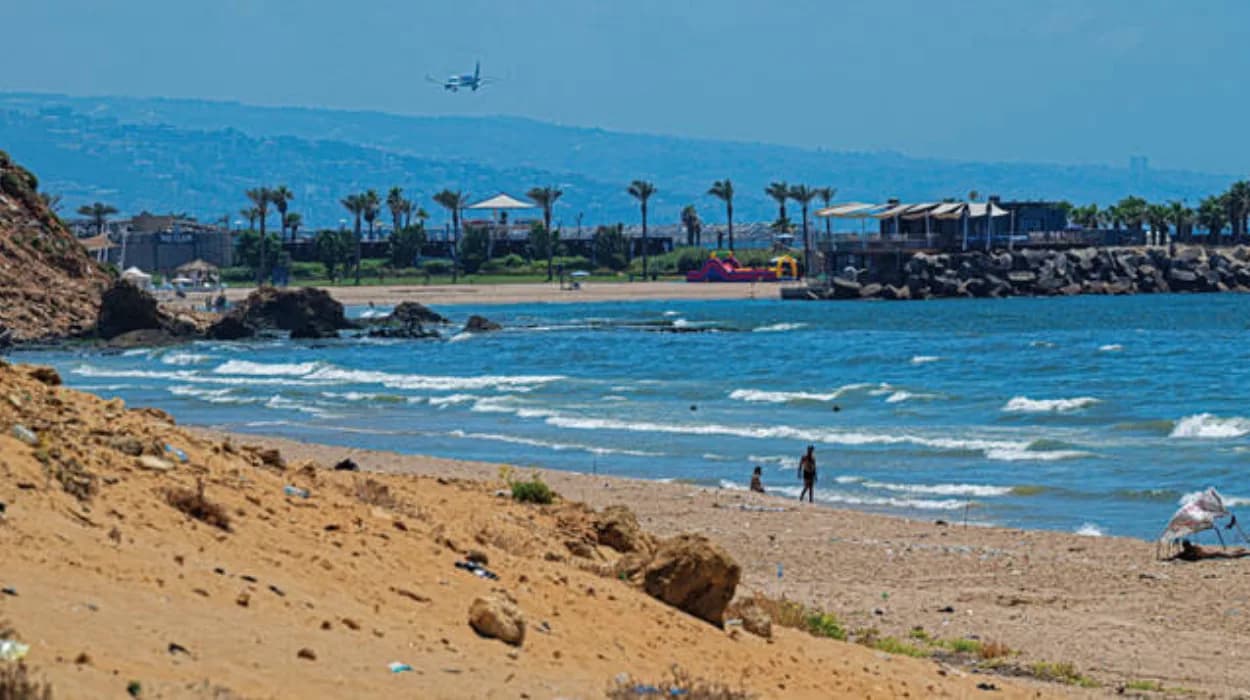Lebanon is increasingly relying on Gulf tourists to revive
its struggling economy amid a severe financial crisis and political
instability. The Lebanese government and tourism sector are implementing
strategies to attract wealthy visitors from Gulf countries, hoping to stimulate
economic growth and foreign currency inflows.
What Is Driving Lebanon’s Economic Collapse?
Lebanon has been grappling with a catastrophic economic
collapse since 2019, marked by hyperinflation, currency devaluation, and
widespread poverty. According to various reports, the country’s financial
system is in disarray, with banks imposing informal capital controls and the
Lebanese pound losing over 90% of its value against the US dollar. This crisis
has severely impacted daily life, with shortages of basic goods, fuel, and
electricity.
The political landscape remains unstable, with frequent
government deadlocks and public protests demanding accountability and reform.
The devastating Beirut port explosion in 2020 further compounded economic woes,
destroying critical infrastructure and displacing thousands.
Gulf Tourists Seen as a Solution
As reported by local tourism experts, Lebanon is turning to
Gulf Cooperation Council (GCC) countries—such as Saudi Arabia, the United Arab
Emirates, Kuwait, and Qatar—as a vital source of tourism revenue. Gulf tourists
are known for their high spending power and preference for luxury travel, which
Lebanon hopes to capitalise on to inject much-needed foreign currency into its
economy.
The Lebanese Ministry of Tourism has launched targeted
campaigns and eased visa restrictions to facilitate travel from Gulf states.
Industry insiders suggest that Gulf visitors’ cultural affinity with Lebanon
and the country’s historic reputation as a regional tourism hub make this a
promising strategy.
Lebanon Attracting Gulf Tourists
Lebanese tourism officials and private sector stakeholders
have adopted several measures to attract Gulf tourists, including:
- Promoting
luxury and cultural tourism: Highlighting Lebanon’s Mediterranean
coastline, historical sites, and vibrant culinary scene.
- Offering
tailored travel packages: Collaborating with Gulf travel agencies
to design exclusive experiences.
- Improving
infrastructure: Efforts to restore hotels and resorts damaged in
recent years.
- Marketing
campaigns: Utilising social media and Gulf-based media outlets to
reach potential visitors.
As noted by tourism analyst Nadim Karam in an interview with
regional media, “The Gulf market is crucial for Lebanon’s tourism revival.
Their spending can help stabilise our economy and create jobs.”
Challenges Facing This Strategy
Despite the optimistic outlook, several challenges persist:
- Political
instability: Ongoing governance issues and security concerns may
deter tourists.
- Economic
hardships: Inflation and service disruptions can affect the visitor
experience.
- Regional
competition: Other Mediterranean destinations are also vying for
Gulf tourists.
- Infrastructure
deficits: Power outages and transportation issues remain
problematic.
Economic expert Dr. Rania Haddad cautions, “While Gulf
tourism can provide relief, it is not a panacea. Structural reforms and
political stability are essential for sustainable recovery.”
Potential Economic Impact
If successful, increased Gulf tourism could:
- Boost
foreign currency reserves.
- Support
the hospitality and retail sectors.
- Generate
employment opportunities.
- Encourage
investment in infrastructure and services.
According to the Lebanese Ministry of Economy and Trade, tourism accounts for approximately 20% of Lebanon’s GDP, and Gulf visitors represent a significant share of this revenue. Reviving this sector is therefore seen as a strategic priority.
Gulf Countries Response
Gulf states have shown a renewed interest in strengthening
ties with Lebanon, including facilitating travel and investment. Some Gulf
investors have expressed willingness to finance tourism projects and
infrastructure upgrades.
However, diplomatic relations remain complex due to regional
political dynamics and Lebanon’s internal divisions. Gulf governments are
monitoring developments closely before committing large-scale support.
Outlook for Lebanon’s Tourism Sector
Industry insiders remain cautiously optimistic. While the
path to recovery is fraught with obstacles, the Gulf tourism initiative
represents a pragmatic approach to mitigating Lebanon’s economic crisis.
As reported by journalist Samir El-Masri of The Middle East
Monitor, “Lebanon’s tourism revival hinges on its ability to offer safety,
stability, and quality services to Gulf visitors. Success here could pave the
way for broader economic recovery.”
Can Gulf Tourists Save Lebanon’s Economy?
Lebanon’s bet on Gulf tourists is a calculated effort to
leverage regional ties and tourism’s economic potential amid a dire financial
crisis. While this strategy offers hope, its success depends on overcoming
political instability, improving infrastructure, and delivering a compelling
visitor experience.
The coming months will be critical in determining whether
Lebanon can reclaim its status as a premier destination for Gulf travellers and
use tourism as a catalyst for economic revival.
